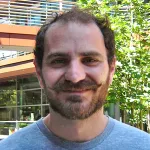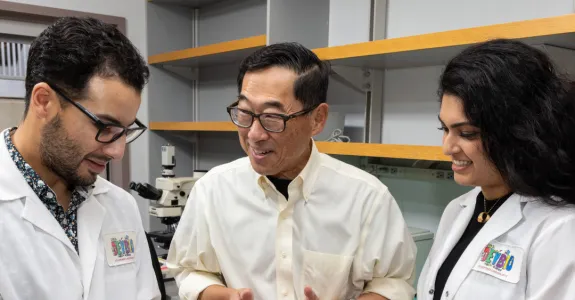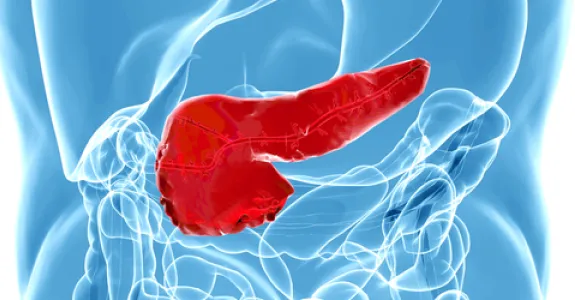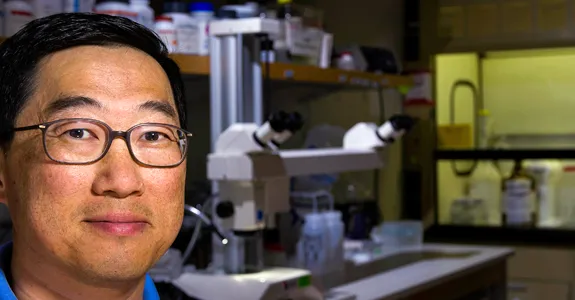
Dr. Seung Kim's goal is to identify and understand the pathways that govern organogenesis of the pancreas, a vital organ with endocrine and exocrine functions. The lab is using Drosophila, chicks and mice, organisms accessible to embryological, genetic and molecular methods, to identify cell interactions and signaling pathways that regulate early steps in pancreatic islet development. Some of the pathways active during ontogeny also regulate pancreatic growth during adulthood, and we are studying the role of these genetic pathways in growth control and function of the mature pancreas in mice. Armed with an understanding of the mechanisms regulating normal development of insulin-producing cells and other islet cells, they have been able to differentiate functional glucose-responsive islets from embryonic stem cells and other cell lines. These are capable of rescuing glucose regulation and survival in experimental animal models of diabetes mellitus. They are now using this in vitro culture system to isolate candidate islet stem/precursor populations from adult human stem cell populations. They are also using Drosophila to study neuroendocrine cells that govern metabolism. They have discovered that two cell types, one which produces insulin, the other which produces a glucagon-like peptide called AKH, are crucial regulators of glucose homeostasis in Drosophila. Genetic, biochemical, and electrophysiologic studies are being used to elucidate the programs that control development and function of these cells, which comprise the Drosophila endocrine 'pancreas'. In turn, they expect that these studies will identify important conserved functions that govern islet cell biology.







